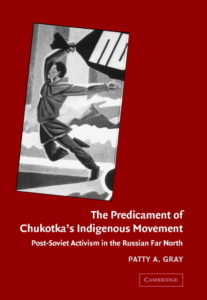The writing I do today is literary and journalistic, ranging from fiction to memoir to personal essays on a variety of topics, but most of my published writing (from my academic past) is in scholarly journals, aside from one book with an academic publisher. The following is a list of recent literary work and a selection from my older scholarly work:
 “Ekphrasing Werner Herzog” (playful essay) in Chicago Quarterly Review (Spring 2025).
“Ekphrasing Werner Herzog” (playful essay) in Chicago Quarterly Review (Spring 2025).- “These Things Keep Happening To Me” (short story) in Cagibi (October 2024)
- “TAHBSO Suite” (collection of poems) in The Calendula Review: A Journal of Narrative Medicine, for their inaugural issue, “Inception” (Fall 2023).
- “A Fistful of Spoons” (short story) in 86 Logic, issue 9 (Spring 2023).
- “Right Before My Eyes” (short story) was a semi-finalist in the 2023 American Short Fiction Halifax Ranch Fiction Prize.
- My Absurd Aspirations (chapbook) was a semi-finalist for the 2023 Newfound Prose Prize.
- “Putin’s Long Game” (critical essay) in the Society for Cultural Anthropology’s blog Editor’s Forum / Hot Spots, March 28, 2022.
- “Memory, Body, and the Online Researcher: Following Russian Street Demonstrations via Social Media” (research article) in American Ethnologist, Volume 43, Issue 3, August 2016.
- “Letter from Snezhnoe, Where East and West Collide” (personal essay) in Transitions: Changes in Post-Communist Societies, Volume 4, Number 6, November 1997. (Transitions was a journalistic magazine that was published in print for only a few years.)
The Predicament of Chukotka’s Indigenous Movement
Post-Soviet Activism in the Russian Far North

I see human beings as inherently political creatures, and I find political power struggles interesting. But indigenous people have often been treated as cultural creatures, bearers of tradition who transcend politics. This framing doesn’t work in trying to understand the diverse indigenous peoples of the Russian North, who were highly politicized throughout the Soviet period and served as elected representatives in local soviets as well as in the Soviet of Nationalities that met in Moscow. Indigenous activism in the Russia North began to wax in the 1980s during glasnost’ and perestroika, and it escalated when the Soviet Union was dissolved in 1991. I arrived in Chukotka for fieldwork in 1995, in time to witness and document a political transformation underway. Indigenous activists had been prepared to confront Soviet-style domination, but the ‘new Russian’ style of Chukotka’s post-Soviet governor, Aleksandr Nazarov, was more insidious. Representing himself as ‘democratic’ while becoming ever more repressive, Nazarov used his administrative powers to evict indigenous Chukotkans from political and economic spaces while trying to box them into the space of traditional culture as nothing more than folkloric icons. This was the predicament of Chukotka’s indigenous movement. My ethnography of this confrontation unfolds primarily in the urban setting of Anadyr’, Chukotka’s capital city.
Published by Cambridge University Press / In paperback: ISBN: 9781107404946
‘Gray insightfully approaches this situation in terms of control of space … it provides the context necessary to understand the situation in Chukotka today. I would highly recommend this book to anyone interested in Chukotka and in indigenous issues more generally.’
—Virginie Vaté, Centre National de la Recherche Scientifique, Paris
‘A sweeping and incisive study that makes a fundamental contribution to the literature on native peoples in the post-Soviet north. This outstanding study will have lasting appeal to a very broad readership.’
—Peter Jordan, Lund University
‘Scholars and students of the Russian North should read this eye-opening account of Chukotka’s geopolitics, history, economics and culture…The case study is worth comparing with the plight of Native Americans in the United States of America.’
—Jane E. Knox-Voina, Bowdoin College
